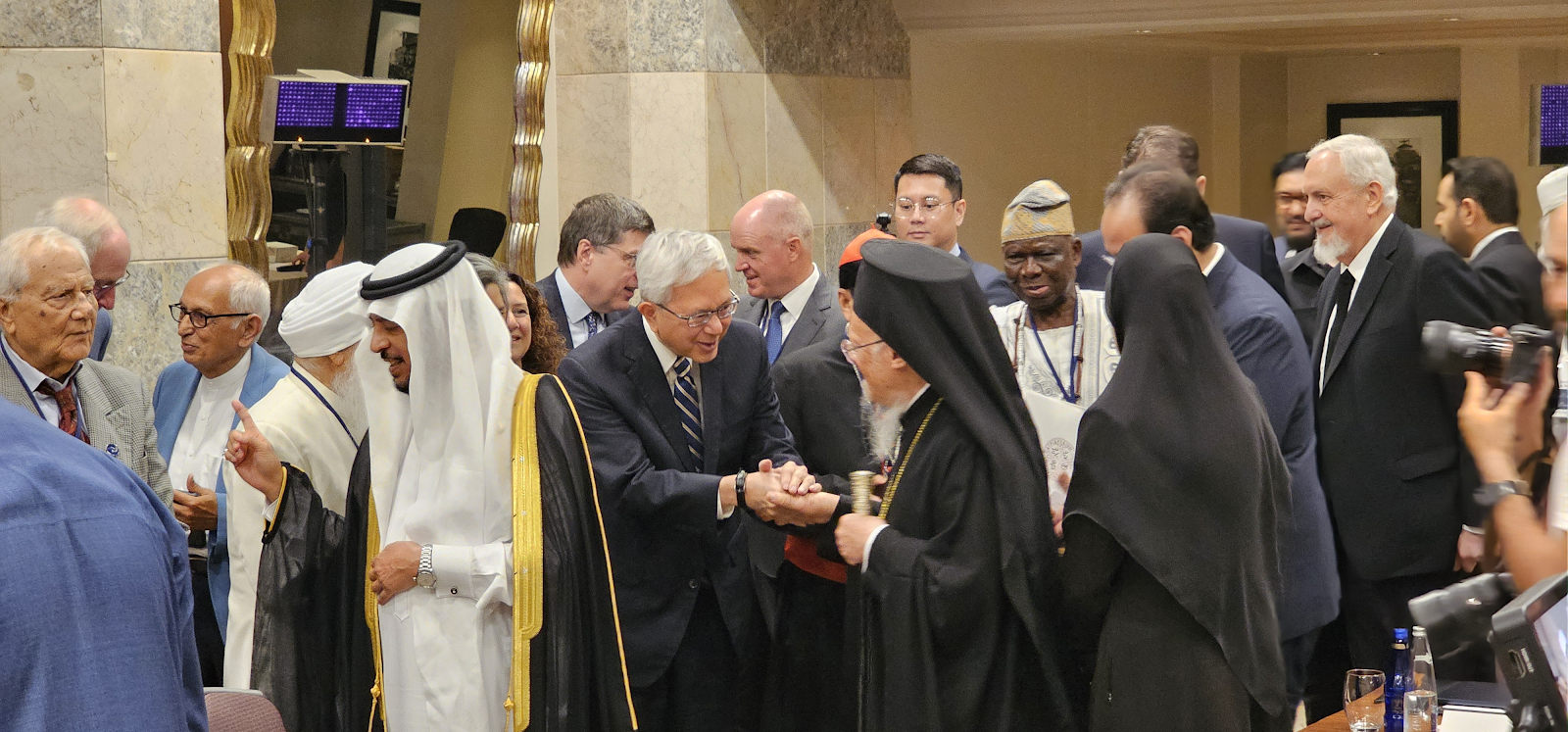Facilitating Global Interfaith Responses to the World’s Most Urgent Challenges
Faith leaders and communities have served on the frontlines of every major challenge the world has ever faced – Religions for Peace brings this expertise and commitment together for interfaith solutions that include government, civil society, and all other stakeholders.
Ten World Assemblies
Every five to seven years, Religions for Peace convenes a World Assembly to bring together faith leaders with government and civil society partners to forge a consensus on global priorities for peace and elect new leadership.
Previous World Assemblies have taken place in 2019 (Lindau, Germany), 2013 (Vienna, Austria), 2006 (Kyoto, Japan), 1999 (Amman, Jordan), 1994 (The Vatican, Italy), 1989 (Melbourne, Australia), 1984 (Nairobi, Kenya), 1979 (Princeton, United States), 1974 (Leuven, Belgium), and 1970 (Kyoto, Japan).
https://www.rfp.org/leadership/
_____
At the 2025 meeting, Elder Gerrit Gong participated in a panel discussion.
https://x.com/GerritWGong/status/1950317001714630988
Sustainable Development Goals
- End poverty in all its forms everywhere.
- End hunger, achieve food security and improved nutrition and promote sustainable agriculture.
- Ensure healthy lives and promote well-being for all at all ages.
- Ensure inclusive and equitable quality education and promote lifelong learning opportunities for all.
- Achieve gender equality and empower all women and girls.
- Ensure availability and sustainable management of water and sanitation for all.
- Ensure access to affordable, reliable, sustainable and modern energy for all.
- Promote sustained, inclusive and sustainable economic growth, full and productive employment and decent work for all.
- Build resilient infrastructure, promote inclusive and sustainable industrialization and foster innovation.
- Reduce inequality within and among countries.
- Make cities and human settlements inclusive, safe, resilient and sustainable.
- Ensure sustainable consumption and production patterns.
- Take urgent action to combat climate change and its impacts.*
- Conserve and sustainably use the oceans, seas and marine resources for sustainable development.
- Protect, restore and promote sustainable use of terrestrial ecosystems, sustainably manage forests, combat desertification, and halt and reverse land degradation and halt biodiversity loss.
- Promote peaceful and inclusive societies for sustainable development, provide access to justice for all and build effective, accountable and inclusive institutions at all levels.
- Strengthen the means of implementation and revitalize the global partnership for sustainable development.
Six Key Priorities
Peaceful, Just, and Inclusive Societies
Our faith traditions inspire us to be changemakers where conflict, mass displacement, poverty, violent extremism and inequality call for common action
Gender Equality
Equality for women and girls is a foundation for securing a more peaceful and inclusive world for all people.
The Environment
Recognising the intimate connection between all forms of life and communities, we are committed to nurturing a sustainable environment.
Freedom of Thought, Conscience, and Religion
Everyone has the right to freedom of thought, conscience and religion. We bring faith communities together to champion this right for all.
Interreligious Education
Understanding diverse traditions is vital to increasing trust, respect, and cooperation among all people and faiths.
Global Partnerships
Strong partnerships with governments, civil society, and faith-based organisations ensures that our work is effective and leaves no one behind.





